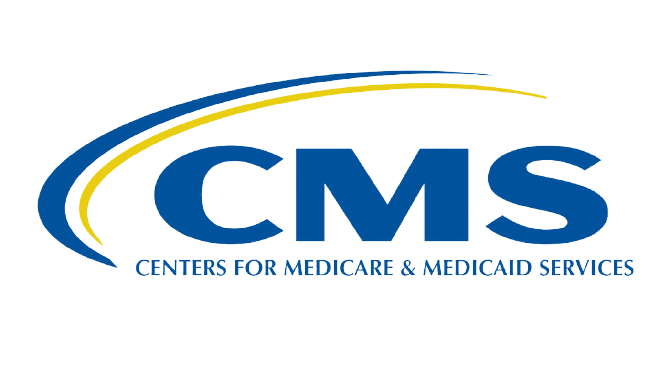- Bone Health
- Immunology
- Hematology
- Respiratory
- Dermatology
- Diabetes
- Gastroenterology
- Neurology
- Oncology
- Ophthalmology
- Rare Disease
- Rheumatology
BioRationality: First Price Reductions Under the IRA—3 Biologics With No Biosimilars
Sarfaraz K. Niazi, PhD, reacts to CMS' list of the first 10 drugs chosen for price negotiation under the Inflation Reduction Act (IRA), including 3 biologics with no biosimilar competition.
The Inflation Reduction Act (IRA) of 2022 included authority to CMS to select 10 drugs with the highest reimbursement cost and negotiate their prices. Still, only after these drugs had a monopoly for 8 years for small molecule drugs and 12 years for biologic drugs without generic or biosimilar competition in the next 2 years.1
This list is very much what I had predicted in 2022, and they now have a yearly reimbursement of over $50 billion. The 3 biologics on the list are Enbrel (etanercept), Stelara (ustekinumab), and Novolog (insulin aspart including all formulations and devices). These products were selected because there were no biosimilars available—one reason why Humira (adalimumab) had much higher reimbursement was not selected. It was also included in the Part D category.
CMS logo

CMS will propose a price reduction of 35% effective 2026. Still, given the likelihood of biosimilars to these 3 drugs coming to market before 2026, it is less likely that any price reduction will be necessary. The reference product company can also ask for an extension in anticipation of the approval of biosimilars, but if it does not arrive, an additional penalty is added. However, the reference product company cannot engage in any backhand deal to bring biosimilars; these must be from independent companies.
The case of the Novolog pen is interesting. Under the IRA, Medicare Part D patients do not pay more than $35 per month for insulin supply that will include this pen; CMS is picking up the tab of the difference with the offered price. The opponents of the IRA were able to remove the insulin cost ceiling for non-Medicare patients—a tragedy, in my opinion.
It is surprising to many that the highest reimbursement cost drugs are not biologics, as shown in the first selection and as it will continue. It will be in the interest of big pharma to promote the arrival of biosimilars to avoid any price reductions. However, it is important to iterate that the price reduction does not apply to two-thirds of the market, and the reference product prices are not required to correlate with their CMS pricing.
The first announcement of price reduction starting in 2026 is a pivotal event of great significance, but it must first be understood how it works. For example, the originator may offer a reference product at a lower price if biosimilars are available. The motivation for biosimilar developers is not dependent on the list price of the reference product—it is just too high despite the 35% price reduction.
CMS' lowest reimbursement for monoclonal antibodies is about $350,000 per g, and the highest reimbursement is $25 million per g; all antibodies cost less than $100 per gram to manufacture. However, the selection of drugs is not based on the relative cost but on the total amount reimbursed, which depends highly on the patient population in Medicare and Medicaid.2
After Merck and Bristol Myers Squibb (BMS) took shots at the IRA in separate lawsuits, the influential trade group Pharmaceutical Research and Manufacturers of America (PhRMA) and 2 other organizations—the Global Colon Cancer Association and the National Infusion Center Association—have joined, claiming that the IRA is unconstitutional.
While Merck and BMS asserted violations of the First and Fifth Amendments with their respective lawsuits, the new case takes a different approach, raising new arguments over the Eighth Amendment. PhRMA's lawsuit claims that the IRA’s excise tax, imposed on any drugmaker that doesn’t comply with Medicare’s price-setting negotiations, violates the Eighth Amendment’s Excessive Fines Clause. The new law forces a tax that starts at 186% of a drug’s annual revenue and increases to a maximum of 1,900% for noncompliance, essentially functioning “as a penalty that is grossly disproportionate to the 'offense' it seeks to punish” the groups argue in their suit.
PhRMA and the other groups also argued over the Fifth Amendment’s Due Process Clause, typically used in criminal procedures. They argue that the IRA breaches the clause by denying public input on how the law will be implemented. Additionally, the lawsuit cries foul on the broad authority Congress delegated to the HHS to set these prices, calling the action in conflict with the Constitution’s separation-of-powers principles.
Ironically, the IRA is also opposed by the Association of Affordable Medicines, an unlikely partnership with PhRMA and big pharma. Generics and biosimilars will bloom under the IRA since their presence removes any constraints on originator products. The PhRMA should welcome it, not oppose it, if only the text of the Act is ready correctly. I had the privilege of reviewing the draft of IRA, and I had wanted it to be more stringent. What we have is not only fair, it is long overdue.
Reference
- Niazi SK. The Inflation Reduction Act: A boon for the generic and biosimilar industry. J Clin Pharm Ther. 2022;47(11):1738-1751. doi:10.1111/jcpt.13783
- Niazi, S.K., 2023. Biosimilars adoption: Recognizing and removing the road blocks. Clinicoecon Outcomes Res. 2023;15:281-294. doi:10.2147/ceor.s404175
Newsletter
Where clinical, regulatory, and economic perspectives converge—sign up for Center for Biosimilars® emails to get expert insights on emerging treatment paradigms, biosimilar policy, and real-world outcomes that shape patient care.
